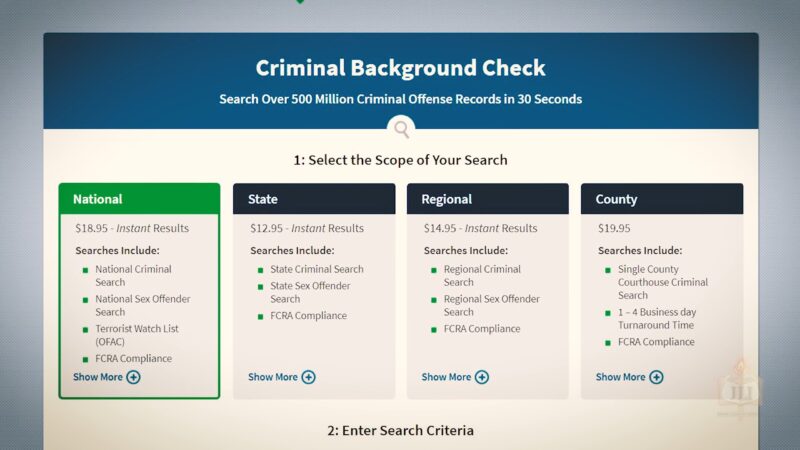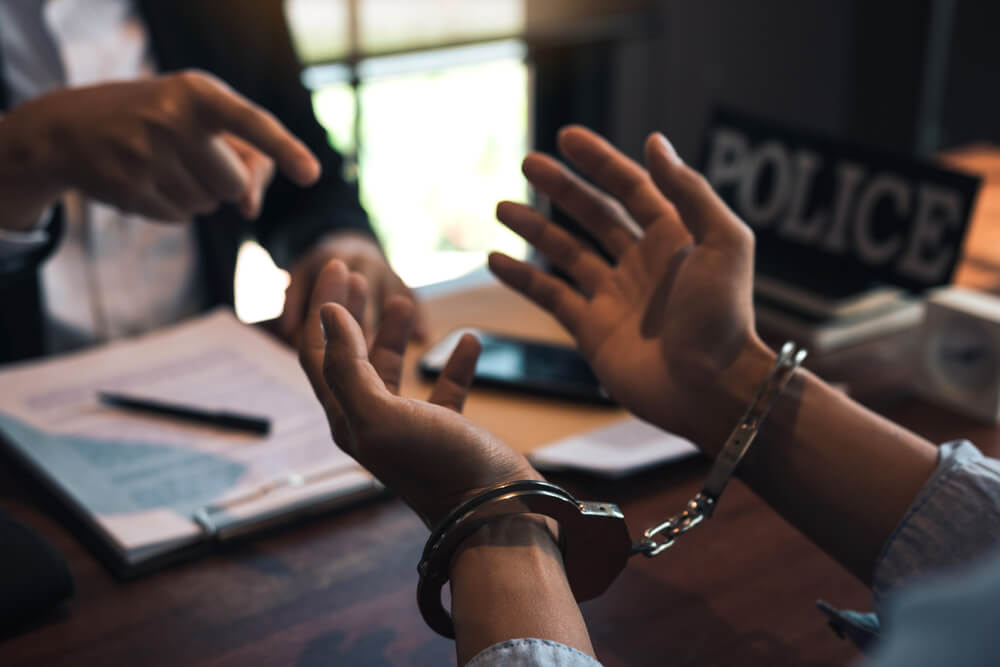Navigating the complex terrain of the legal system, especially when it concerns criminal charges, can be daunting.
Knowing if there are criminal charges filed against you is crucial for taking timely and appropriate actions to protect your rights and prepare for potential legal proceedings.
The Indicators of Criminal Charges

It’s vital to be aware of the indicators that might suggest criminal charges have been filed against you. These signs can range from official notices to indirect clues.
Receipt of a Summons or Warrant
The most direct indicator of criminal charges is receiving a summons or warrant. This document will clearly state the charges and the required court appearance.
Contact by Law Enforcement
If law enforcement officers attempt to contact you or visit your residence, it might indicate that charges have been filed.
Inquiries from Family or Employers
Sometimes, law enforcement might contact your relatives or employers during their investigation, which can serve as an indirect indicator.
Legal Representation
Upon encountering any of these signs, it’s advisable to seek legal counsel immediately. A lawyer can provide clarity on the situation and guide you through the legal process.
Proactive Steps to Determine Filing of Charges
Checking Court Records
One of the most effective ways to find out if charges have been filed against you is by checking court records. These records are typically public and can be accessed in the following ways:
- Online Court Databases: Many jurisdictions have online databases where you can search for your name to see if there are any charges or cases listed against you.
- Visiting the Courthouse: If online resources are not available, visiting the local courthouse and requesting to view public records can be an alternative.
- Hiring an Attorney: An attorney can access more detailed legal databases and can efficiently check for any charges filed against you.
Moreover, understanding the nuances of navigating law enforcement and court systems can significantly enhance your ability to monitor for any unresolved legal matters, offering a deeper dive into strategies for staying informed about your legal standing.
Contacting Law Enforcement
Another approach is to directly contact the law enforcement agency that might have filed the charges. This step should be taken cautiously and ideally under the advice of a lawyer.
Legal Implications and Next Steps

Know Your Rights
If you discover that criminal charges have been filed against you, it’s essential to understand your legal rights. These include the right to remain silent, the right to an attorney, and the right to be presumed innocent until proven guilty.
Preparing for Legal Proceedings
The discovery of criminal charges necessitates immediate preparation for legal proceedings. This involves:
- Gathering Documentation: Collect any documents or evidence that might be relevant to your case.
- Building a Defense Strategy: Work with your lawyer to develop a defense strategy based on the specifics of your case.
- Understanding the Jury’s Perspective: Familiarizing yourself with the deliberation process jurors undergo can offer invaluable insights into how your case might be evaluated from their standpoint
Seeking Legal Counsel
The role of a competent attorney cannot be overstated in such scenarios. An experienced lawyer will guide you through the legal system, help you comprehend the charges and the evidence against you, and represent your interests in court.
The Role of Public Defenders
If you cannot afford a private attorney, it is important to know the role of public defenders in the legal system. Public defenders are court-appointed attorneys provided to individuals who are unable to afford private counsel.
While they handle a large caseload, these lawyers are well-versed in criminal law and can offer competent legal representation.
- Requesting a Public Defender: If you’re eligible, you can request a public defender during your first court appearance. The court will typically assess your financial situation to determine eligibility.
- Cooperation with Your Public Defender: It’s crucial to provide all relevant information and cooperate fully with your public defender to build a strong defense.
- Knowing About Limitations: Be aware of the high caseloads that public defenders often manage, which might affect the amount of time they can dedicate to your case.
Impact on Personal and Professional Life

The knowledge that criminal charges have been filed against you can strain personal relationships. It’s important to:
- Communicate Openly: Be honest with family and close friends about your situation. Support from loved ones is crucial during such times.
- Seek Counseling: Consider professional counseling to help cope with the emotional stress and maintain mental health.
Professional Repercussions
Criminal charges can also impact your professional life:
- Employment: Be aware that employers may conduct background checks. Depending on the nature of your job and the charges, this could affect your employment status.
- Reputation Management: Consider strategies to manage your professional reputation, including being proactive in communicating with your employer if necessary.
Navigating the Legal System
Knowing about court procedures is essential:
- Arraignment: This is usually the first court appearance where you are formally read the charges and asked to enter a plea.
- Bail and Bond Hearings: If applicable, there will be a hearing to set bail. Being informed about the bail process and conditions is crucial.
- Trial Preparation: If your case goes to trial, be prepared for a process that may take several months to years, depending on the complexity of the case.
Record Keeping
Maintaining a detailed record of all legal documents, court appearances, and interactions with your lawyer is critical. This not only helps in staying organized but also ensures you have all the necessary information at your fingertips.
Accessing Support Systems
In times of legal turmoil, accessing support systems can be invaluable. These support systems can provide both emotional and practical assistance.
Community Resources
Many communities offer resources for individuals facing legal issues, including counseling services, legal aid clinics, and support groups. These can be crucial for emotional support and practical advice.
Online Forums and Networks
Joining online communities that focus on legal support can provide a sense of solidarity and useful information from others who have faced similar challenges.
Family and Friends
Relying on close family and friends for emotional support is vital. They can offer a listening ear, practical help, or even assistance in navigating the legal process.
Dealing with the Financial Aspect

Facing criminal charges often comes with financial implications. Managing these aspects is crucial.
Legal Expenses
Legal representation can be expensive. It’s important to:
- Budget for Legal Fees: If you’re hiring a private attorney, get a clear knowledge of their fee structure and budget accordingly.
- Explore Legal Aid Options: For those unable to afford private representation, exploring legal aid societies or pro bono services can be a viable option.
Financial Planning
The potential of fines, bail money, or loss of income due to legal proceedings calls for careful financial planning. Seeking advice from a financial advisor or counselor can help manage these challenges effectively.
Long-Term Considerations

Impact on Criminal Record
A criminal charge, regardless of the outcome, can have a lasting impact on your criminal record. This can affect future employment, travel, and other aspects of life. It’s important to:
- Expungement: In some cases, you may be eligible to have your record expunged, removing the charges from public record.
- Stay Informed About Legal Rights: Being aware of how a criminal record can affect your life and knowing your rights regarding disclosure are important.
Moving Forward
Once the legal process is over, it’s essential to focus on moving forward.
- Reintegration into Society: If your charges led to incarceration, reintegration programs can assist in adjusting back into society.
- Continued Legal Compliance: Ensure compliance with any ongoing legal obligations, such as probation or community service, to avoid further legal complications.
- Personal Growth and Learning: Reflect on the experience and consider ways to use the lessons learned for personal growth and development.
FAQs
Can I find out if someone else has criminal charges filed against them?
Yes, you can check public court records, which are typically accessible online or at the courthouse. However, privacy laws may restrict access to certain types of information.
Will I be notified by mail if criminal charges are filed against me?
In many cases, you will be notified by mail, especially if a court summons or warrant is issued. However, it’s not guaranteed, so proactive checking is advisable.
How quickly do criminal charges appear in public records after being filed?
The time frame can vary depending on the jurisdiction and the efficiency of the court system, but it’s generally within a few days to a week.
Can criminal charges be filed against me without my knowledge?
Yes, charges can be filed without your immediate knowledge, especially if they are filed in a different jurisdiction or if there are delays in the notification process.
If I find out I have a warrant, should I turn myself in?
It’s advisable to consult with a lawyer before taking any action. Turning yourself in without legal advice might not always be in your best interest.
Are there any online resources to help me understand my rights if I’m charged with a crime?
Yes, many legal aid websites and government portals provide resources and guides on legal rights and the criminal justice process. It’s important to refer to reputable sources for accurate information.
Final Words
Finding out if criminal charges have been filed against you is a matter of vigilance, proactive investigation, and understanding the legal system. Being aware of the signs, checking public records, and seeking legal advice are critical steps in this process.
Once charges are confirmed, knowing your rights and preparing for legal proceedings become paramount. Remember, the guidance of a qualified attorney is your most valuable resource in navigating these challenges.
